Lawyers find their skill sets make them ideal candidates for college presidencies

Photo by Albert Dickson Photography/ABA Journal
It was spring break at Benedict College when news reports emerged in March 2020 that the novel coronavirus was spreading across the country. Yet there were still hundreds of students on the school’s campus in Columbia, South Carolina.
Benedict President Roslyn Clark Artis and her team worked around the clock to help the students, including international ones, quickly return home so the campus could close because of the mounting public health crisis. Meanwhile, the historically Black college extended spring break for an additional week so that faculty could transition classes online to finish out the semester.
After the liberal arts institution made it through that initial tumult sparked by COVID-19, Artis turned her attention to determining what the next academic year would look like for the school’s roughly 2,000 students.
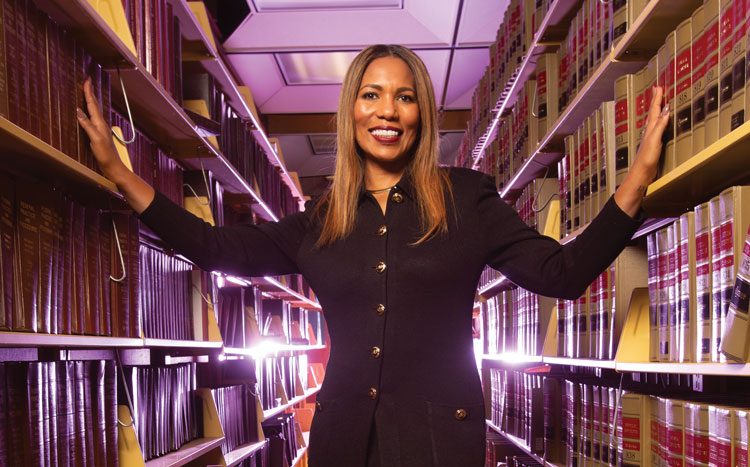
Roslyn Clark Artis. Photo by Albert Dickson Photography/ABA Journal.
Fortunately for her, she was able to rely on the problem-solving and critical thinking skills she developed during her decade as a lawyer in private practice—especially when it came to grappling with the array of liability issues presented by the evolving pandemic. Of paramount importance was deciding whether students and employees could safely return to campus in the 2020-21 academic year. Ultimately, Benedict allowed up to 50% of its students to come back in person and implemented a universal testing protocol as part of its extensive safety measures. The college also instituted a policy that allowed faculty with underlying health conditions and of advanced age to teach remotely, determining that the institution could potentially face legal exposure if it forced them to return in person at the peak of the pandemic and without a vaccine being available.
“The lawyer voice in me says, ‘Avoid liability at all costs and to the extent that you can. Protect and preserve life at all costs,’” Artis says. “So most of my decision-making is made against that backdrop.”
Artis is one of the rapidly growing number of lawyers who have been chosen to lead higher education institutions during an era when experts say the job has become much more difficult because of the ever-increasing regulatory demands and crises presidents must confront. In each of the last two decades, the number of attorneys appointed as college and university presidents has nearly doubled, according to data compiled by Patricia E. Salkin, senior vice president for academic affairs for the Touro College & University System and provost for Touro College’s graduate and professional divisions.
This rise is evidenced by at least 250 lawyers being appointed to college presidencies in the 2010s, up from 68 in the 1990s, reports Salkin, whose research on the topic is part of her dissertation for her PhD in creativity from the University of the Arts in Philadelphia. The attorneys securing the sought-after leadership posts serve at a broad swath of institutions and come from a wide variety of legal backgrounds.
“We pick college presidents in different eras for the different challenges that higher education is facing,” Salkin says. “I think with all of the complexities of higher education over the last quarter century, it has made lawyers more viable candidates and somewhat in demand.”
University counsel offices form an in-house pipeline to the college presidency
In-house attorneys at colleges and universities are frequently on the front lines of confronting the intricate web of regulatory and compliance obligations at the federal, state and local levels.
Experts say that is a major reason why general counsel make up an increasing share of the lawyers who have become college presidents. In the 2000s, 12 of the lawyer-presidents appointed had been prior general counsels, according to Salkin. In the 2010s, she reports, that figure nearly quadrupled to 45, which is 18% of the lawyer-presidents selected that decade.
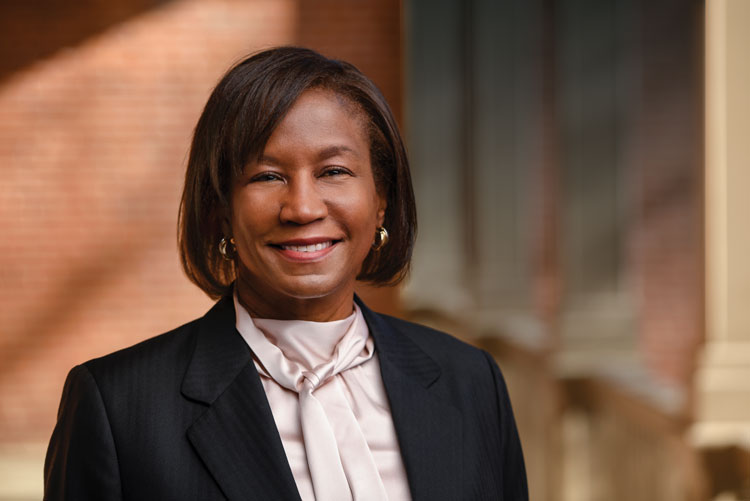
Laurie A. Carter: “Having a good view of higher education and the role of the president really let me know I was prepared to take on the role and to be effective in it.” Photo by Jason Minick.
Laurie A. Carter, the president of Shippensburg University in Pennsylvania, is among the general counsels who have ascended to the pinnacle of higher education leadership. During the roughly 25 years she spent at the Juilliard School in New York City, she became the prestigious institution’s first chief legal officer. More recently, Carter served for three years as university counsel and executive vice president at Eastern Kentucky University. “Having a good view of higher education and the role of the president really let me know I was prepared to take on the role and to be effective in it,” she says.
Carter became president of Shippensburg in August 2017 and says she uses her legal background on a daily basis. She cites efforts to comply with federal civil rights law Title IX as one example. “I have the benefit of having been steeped in Title IX as it was developing and being able to support my team while they are framing things out in a way that can best serve the institution,” Carter says.
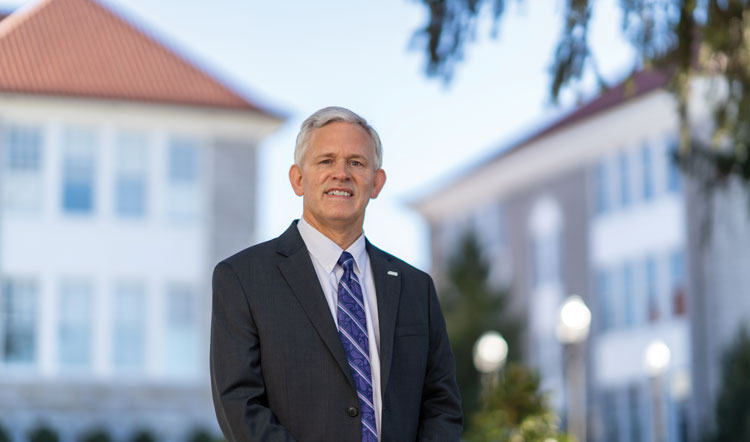
Jonathan R. Alger: “A lot of people have expertise, but they don’t necessarily have that ability to translate and communicate with people who have very different types of expertise.” Photo courtesy of James Madison University.
Jonathan R. Alger, president of James Madison University in Virginia, also previously worked as a high-level lawyer at multiple higher education institutions. While serving as an assistant general counsel at the University of Michigan in the early 2000s, Alger worked on two cases about affirmative action that ultimately made their way to the U.S. Supreme Court. He later served as the general counsel at Rutgers University in New Jersey for more than seven years before taking over as James Madison’s president in July 2012.
Alger says his time as a general counsel prepared him to become a university president because “it is one of the few jobs where you interact with everybody at the institution, both on the administrative side and the academic side.” This required him to spend a lot of time breaking down important legal concepts so they could be understood by a wide array of officials. “I think that is a really valuable skill set in higher ed because a lot of people have expertise, but they don’t necessarily have that ability to translate and communicate with people who have very different types of expertise,” Alger says.
Dennis Barden, a senior partner at the executive search firm WittKieffer, says general counsel also must work closely with college and university boards. Such experience provides the in-house lawyers with a strong understanding of the importance of shared governance in higher education, which is an asset when they are seeking a college presidency.
“That gives boards a lot of comfort in terms of how they are going to be building partnerships with a president,” Barden says.
Law school deans are being elevated to university leadership
Attorneys who have worked in leadership positions at law schools are also consistently being tapped to serve as university presidents.
This group includes current Columbia University President Lee C. Bollinger, who previously served as the law dean at the University of Michigan and later as its president.
Another example is University of West Virginia President E. Gordon Gee, whose time as the university’s law dean preceded his decades of leading institutions such as Vanderbilt University and Ohio State University.
Overall, 35 of the lawyers appointed as college presidents in the 2010s previously had served as law school deans, according to Salkin.
Additionally, several schools have announced in recent months that they would be bringing on law deans as their presidents later this year.
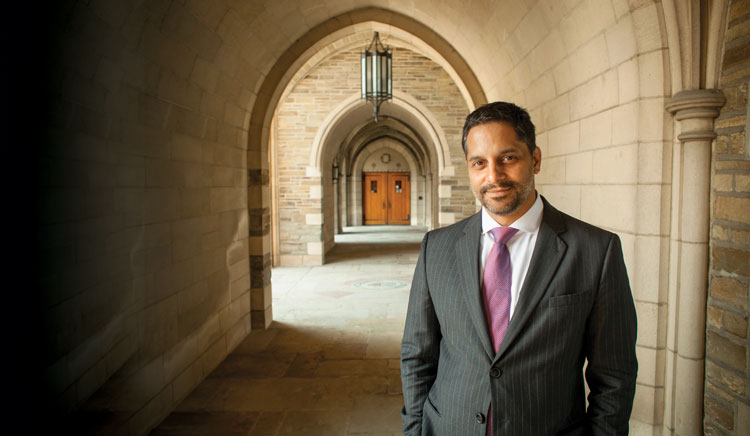
Eduardo Peñalver: “We are always welcoming colleagues across campus to come and engage with us and with each other on the questions we are studying at the law school.” Photo courtesy of Cornell University.
Eduardo Peñalver, who was Cornell Law School’s dean from 2014 through the end of 2020, will become Seattle University’s president on July 1. He says law schools are a great training ground for advancing in higher education leadership because of their multidisciplinary nature.
“We are always welcoming colleagues across campus to come and engage with us and with each other on the questions we are studying at the law school,” Peñalver says. “I think that does provide some advantages in terms of the breadth of the intellectual experiences that people embedded in law schools have when they transition to university leadership.”
L. Song Richardson, who has served in recent years as dean of the University of California at Irvine School of Law, will become president of Colorado College on July 1. Richardson says most of the responsibilities she has had as a law school dean will match the duties she will have as president of a liberal arts college. This includes working with the community to create and realize the strategic vision for the institution.
Richardson also expects her work collaborating with the law school’s leadership team on admissions, budgeting and career development, among other topics, will serve her well as Colorado College’s president. “That’s why taking on this position at a college that shares my vision and values feels natural,” Richardson says.
The executive role law deans must play can give them an edge when competing with candidates coming from other university leadership posts, according to Bill Howard, a vice president and senior consultant at Academic Search. “A dean is more so of a mini-CEO than some of the universitywide positions,” he says.
Werner Boel, a senior partner at WittKieffer, says law school deans also accrue valuable experience working with faculty members who possess a wide range of viewpoints and are typically not shy about sharing them. “I always say, ‘If you can manage a cantankerous law faculty, you can pretty much do anything in the world,’” says Boel, who conducts law dean searches for clients.
He and others who follow legal education closely highlight that law schools have made a concerted effort in recent years to diversify their leadership ranks. This is likely to result in more law school deans becoming college and university presidents because higher education institutions are also seeking increased diversity at the top. “We are going to see, I predict, both more women and more people of color coming out of the law school community because we have a more diverse community of law school deans now than we have ever had,” says Judith Areen, executive director and CEO of the Association of American Law Schools.
Some attorneys have transitioned from private practice to presidency
Lawyers who were in private practice before transitioning into higher education are another subset of attorneys who have become college and university presidents.
Jennifer J. Raab previously worked as a litigator for nearly a decade at two of the nation’s best-known firms: Cravath, Swaine & Moore and Paul, Weiss, Rifkind, Wharton & Garrison. Similar to many other attorneys who later became college presidents, she also worked in government for a time, serving as chair of the New York City Landmarks Preservation Commission for seven years.
In 2001, Raab became president of Hunter College, which is the largest college in the City University of New York. Raab says the advocacy abilities she honed as a litigator have aided her efforts to generate both public and private financial support for the institution. Additionally, she credits the negotiation skills she learned as a lawyer with being instrumental in helping her effectively collaborate with the college’s many different constituencies on a wide range of topics. “Lawyers are brought up knowing that you are not going to succeed unless you can negotiate to a solution,” Raab says.
As for Artis of Benedict College, the roughly eight years she spent as a civil litigator in West Virginia featured work on insurance and mass torts cases. She started at Brown & Levicoff before moving to the Wooton Law Firm. Her transition to higher education was sparked by a transformative experience teaching a business law course at the since-closed College of West Virginia and eventually resulted in her appointment as interim president of Florida Memorial University, a historically Black institution in Miami Gardens, starting in July 2013. She was named its president in February 2014, and she served for another three years before becoming president of Benedict College in the summer of 2017.
She says her legal background has been very beneficial when handling initiatives ranging from real estate transactions to employee benefit changes. “While I’m not an expert in [the Employee Retirement Income Security Act], real estate or tax law, it has been helpful for me as we engage outside counsel on working through the issues to understand the language and to be able to speak as a colleague to those lawyers,” Artis says. “I’d like to think it probably saved us a little something on the bill, because common language keeps everybody honest.”
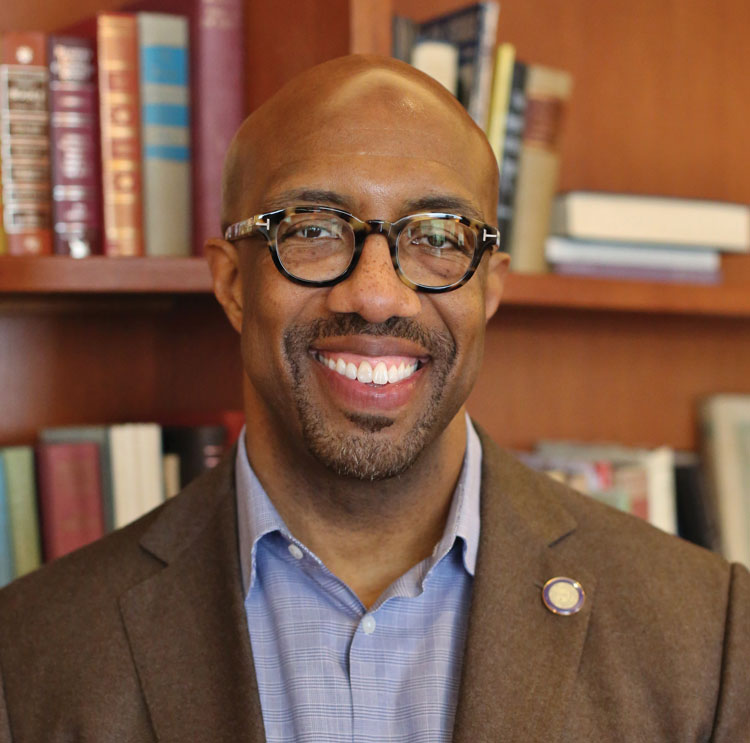
Michael Sorrell: “You understand the need to just take a moment, analyze the situation, look at the facts and then proceed from there.” Photos courtesy of Paul Quinn College.
Michael Sorrell, who has been president of Paul Quinn College in Dallas since 2007, is another higher education leader who spent some of the early part of his career in private law practice. This included three years as a corporate securities lawyer for Dallas-based Jenkens & Gilchrist and nearly three years at Luce & Williams. He credits his legal experience for helping him develop an analytical approach to problem-solving, which he says has been particularly useful when going through the accreditation process at the HBCU he leads.
“You understand the need to just take a moment, analyze the situation, look at the facts and then proceed from there,” Sorrell says.
Will more lawyers move into higher education administration?
Overall, higher education experts say that the experience lawyers from a variety of legal backgrounds possess in addressing conflicts and crises makes them particularly well-suited to serve as college presidents. This is especially true, they argue, during an era in which university leaders must tackle hot-button issues from racial justice to campus sexual assault.
Marvin Krislov, president of Pace University in New York City, is among the lawyer-presidents who highlight the importance of conflict resolution experience. His professional history includes working as acting solicitor for the U.S. Department of Labor and serving as the University of Michigan’s general counsel for nearly nine years, after which he became president of Oberlin College in Ohio.
Krislov says early in his decade-long tenure at Oberlin, he was made aware of allegations that the local police had behaved in a discriminatory way toward students of color. Prompted by his legal training, Krislov set in motion actions designed to discover the facts at issue and hear the viewpoints of the parties involved. He also recalls that a subsequent dialogue between student leaders and police helped calm tensions and create a better working relationship between those two groups moving forward.
“The challenge is to try to find something that acknowledges the different viewpoints and allows people to move forward rather than being trapped in argument,” Krislov says. “In this instance, it worked out quite well because the students felt heard, and the police benefited from the process.”
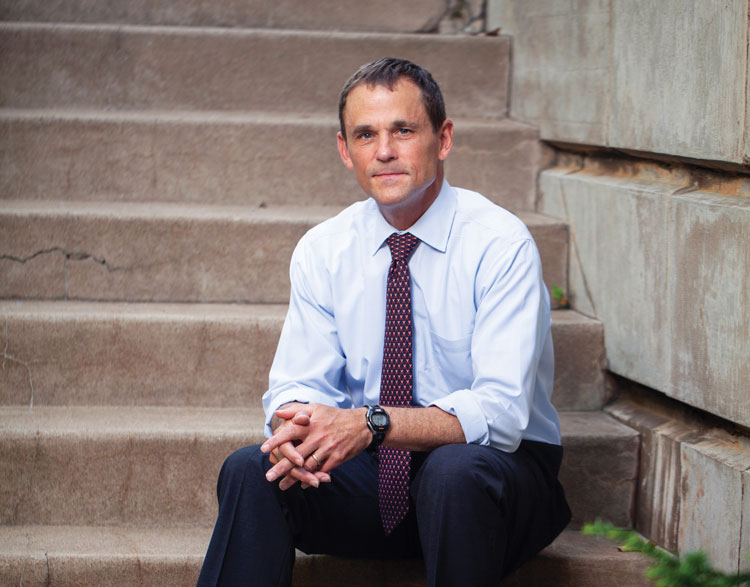
James E. Ryan: “I learned the importance of striking that balance as a lawyer, and it has helped guide our decisions during the pandemic.” Photo by KK Ottesen.
Other lawyer-presidents joined Artis in pointing to COVID-19 as a crisis in which their legal training has been invaluable to addressing a wide spectrum of challenges. University of Virginia President James E. Ryan, who was a Supreme Court clerk and public interest lawyer before moving into higher education, noted his experience making sure laws are applied “both equally and equitably” has helped amid the public health emergency.
“It’s easy enough to apply the same rules to everyone, whether you’re deciding which employees need to come to work or determining what grading options will be available to students,” Ryan said in a statement to the ABA Journal. “But the more important thing is to make sure everyone is being treated fairly and given an equal opportunity to succeed. I learned the importance of striking that balance as a lawyer, and it has helped guide our decisions during the pandemic.”
Meanwhile, the regulatory demands placed on higher education institutions—which have been thrown into sharp relief during COVID-19—show no sign of abating. This trend is a major reason why experts prognosticate the growth in the number of lawyers serving as college and university presidents is likely to continue. Additionally, the ongoing pandemic has exacerbated the enrollment and financial challenges many colleges have been grappling with in recent years, another development some suggest could lead to more university presidents with legal backgrounds.
“I think as the higher education landscape continues to evolve—and in many instances becomes even more unstable—the calm, critical and analytical approach that most lawyers tend to apply will be even more useful in the future,” Artis says.
Salkin agrees, adding that the budgetary difficulties facing colleges and universities could result in opportunities for lawyers with experience in mergers and acquisitions. She predicts that by 2029, lawyers may hold up to 400 college presidency positions—more than 10% of all sitting presidents across the country.
“I think that higher education is going to continue to need creative problem-solvers in order to survive—and also to reimagine itself,” Salkin says.
This story was originally published in the April/May 2021 issue of the ABA Journal under the headline: “Student Counsel: Lawyers find their skill sets make them ideal candidates for college presidencies.”



